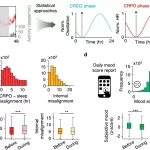A team of researchers, led by Susan Pastula, MPH, from EpidStrategies (a division of ToxStrategies LLC), has published a pivotal study in Population Health Management detailing their scoping review of composite health indicators used to assess community health. The study offers valuable evidence to guide the measurement of population health over time and to identify areas for targeted intervention.
Composite health indicators are vital for evaluating health trends and vulnerabilities across populations. To conduct their review, the team employed a systematic approach involving the identification of research questions, analysis of relevant studies, data charting, and a detailed synthesis of results.
The study revealed a limited number of community health indices currently available. However, the indices reviewed encompass a wide array of indicators, including health outcomes and factors influencing health vulnerabilities. The integration of public data sources and geographic information enhances the versatility of these indices, enabling their application in diverse contexts across the United States.
“Using these indices to perform a multi-factorial assessment of community health patterns may help inform regional, state, and local policy strategies that aim to improve community health and reduce social inequities,” the researchers noted.
Dr. David Nash, Editor-in-Chief of Population Health Management and Founding Dean Emeritus at Jefferson College of Population Health, commended the study: “Susan and her colleagues did a masterful job in adding to our knowledge of measuring the health status of populations. This work is a cornerstone in support of the move to Value-Based Payment and reducing waste in our system of care.”
The findings underscore the potential of community health indices to shape data-driven policies aimed at addressing health disparities and promoting equitable healthcare outcomes.
Reference:
Susan T. Pastula et al., “Scoping Review of Indices to Measure a Community’s Health Status,” Population Health Management (2024). DOI: 10.1089/pop.2024.0138











